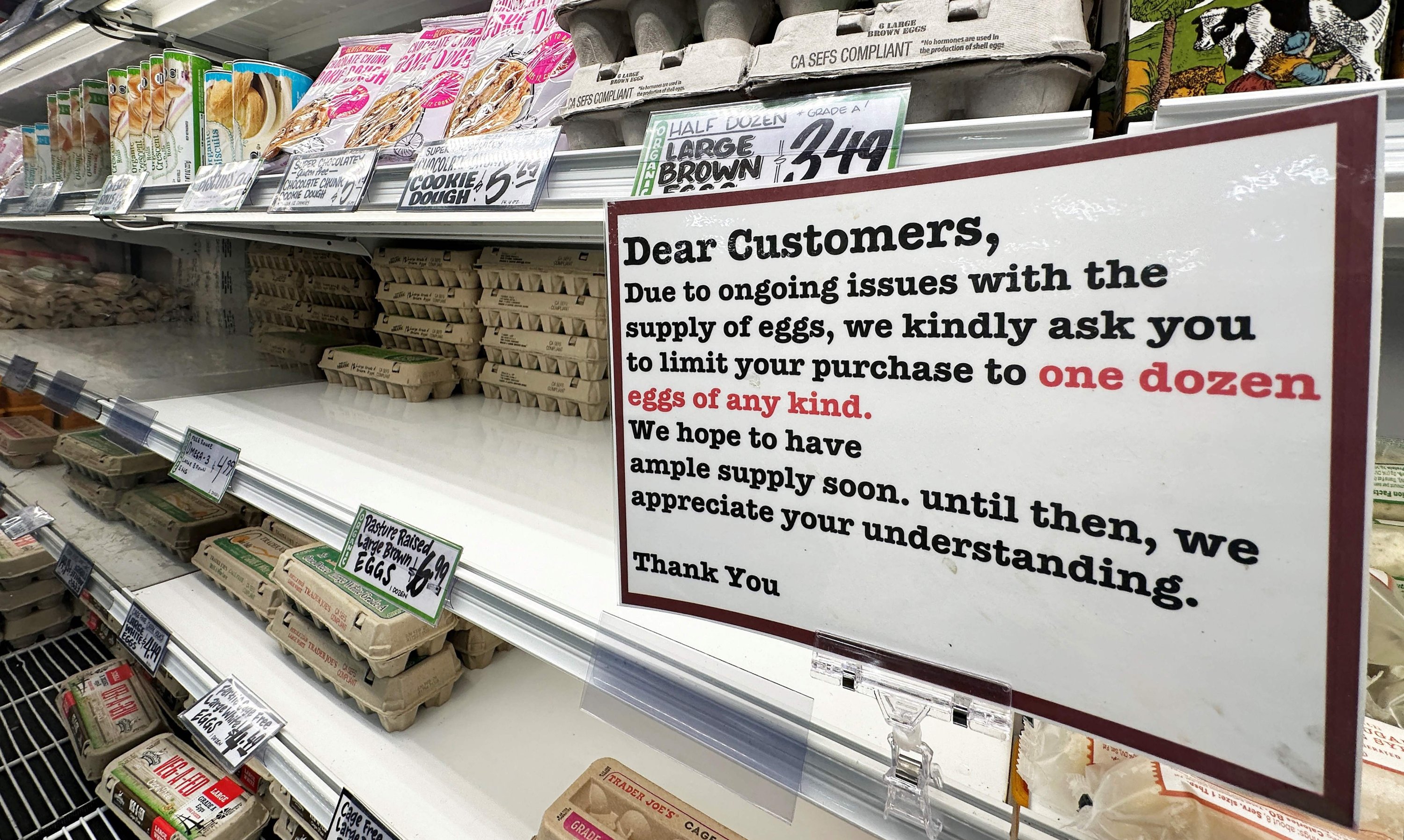© Turkuvaz Haberleşme ve Yayıncılık 2026
A shortage of eggs amid the lingering outbreak of bird flu is causing Americans to struggle with sky-high prices and has prompted the United States to look elsewhere, including Türkiye, to get what has turned into a precious commodity these days.
The outbreak has so far forced farms to slaughter nearly 159 million chickens, turkeys and other birds – including nearly 47 million since the start of December – and is making supplies scarcer and pushing up prices.
In January, the average price of eggs in the U.S. hit a record $4.95 per dozen. That eclipsed the previous record of $4.82 set two years earlier and more than double the low of $2.04 that was recorded in August 2023.
Turkish producers have agreed to a preliminary deal with the U.S. for approximately 15,000 tons of eggs to be shipped by June, following last year's trial purchases, according to Ibrahim Afyon, the head of the Egg Producers Association (YUM-BIR).
"The U.S. will source its needs from Türkiye, which has high supply security and capacity, until the bird flu outbreak subsides, which we do not expect to last long," Afyon told Anadolu Agency (AA).
Still, grocery stores across the nation, running short on eggs, say the situation may not improve for months.

The resurgence of the avian flu, which first struck the United States in 2022, is hitting chicken farms hard, rattling consumers accustomed to buying this dietary staple for only a few dollars.
And the U.S. Department of Agriculture predicted last month that egg prices were likely to go up 20% this year.
As a result of the outbreak, more than 21 million egg-laying hens have been "depopulated" this year so far to limit the spread of the virus. The disruption in production led to a 38% increase in U.S. egg imports in December alone.
The U.S. last imported eggs from Türkiye in January 2023.
"They have a specific demand in a package form. We are prepared to meet this demand, and we have sufficient production capacity," Afyon said. He noted that "medium" sized eggs are being shipped to the U.S. due to the distance.
Afyon emphasized that the planned exports are not beyond the targeted levels and argued it would not lead to an increase in prices at home, particularly as Muslims' holy month of Ramadan is due to begin in March.
"This export should not be perceived as affecting domestic prices ahead of Ramadan. Our eggs prepared for export today may go to Country X or Country Y tomorrow; they can change. However, they are not deducted from domestic consumption,” Afyon explained.
“Exports to the U.S. or demand from the U.S. will not affect domestic prices. Domestic market dynamics and export figures shape independently. Eggs exported to the U.S. should not be seen as a threat to domestic prices as Ramadan approaches."
Afyon asserted that Türkiye's production exceeds the amount required for exports.

"We have an export capacity of 15%-25% in addition to 100% self-sufficiency. We meet the domestic market's needs and send the surplus to the Gulf, Far East or European Union. There is also demand from the EU during this period,” he noted.
He said the U.S. has been forced to import eggs as the bird flu outbreak has caused a supply shortage and higher-than-expected animal losses.
“The U.S., which conducted trial purchases in 2024, signed a preliminary agreement for around 15,000 tons of eggs to be shipped by June. Our companies that will supply this amount will do so by reducing their shipments to other countries,” Ayfon said.
“Türkiye is one of the leading countries in egg production worldwide. The U.S. has limited options for sourcing eggs from other countries."
